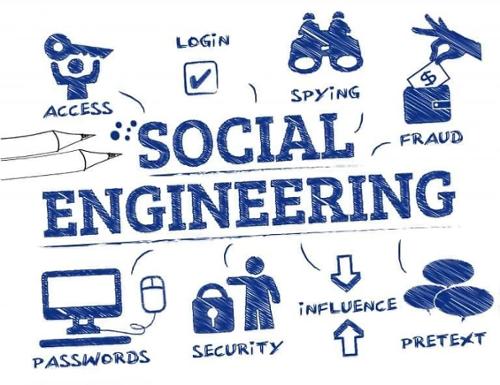Social Engineering: Raising Awareness to Protect Civilians from Scammers

Social engineering is a deceptive technique employed by individuals or groups to manipulate people into revealing sensitive information or engaging in harmful actions. Scammers, with their sophisticated methods, prey on unsuspecting civilians, exploiting human psychology to gain unauthorized access to personal data, financial resources, or even commit identity theft. In this age of digital interconnectedness, it is crucial for civilians to be aware of the tactics employed by scammers and take necessary precautions to safeguard themselves and their communities.
Understanding Social Engineering
Social engineering is an art of manipulation that relies on exploiting human emotions, trust, and vulnerabilities. Scammers often masquerade as trustworthy entities, such as financial institutions, service providers, or even friends and family, to deceive individuals into divulging confidential information or performing actions that compromise their security.
Common Social Engineering Techniques
- Phishing: Scammers send deceptive emails or messages that mimic legitimate sources, aiming to trick recipients into revealing personal information, such as passwords or credit card details.
- Pretexting: Scammers create false scenarios or stories to elicit sensitive information from individuals. They may pose as tech support representatives, government officials, or charity workers to gain trust.
- Baiting: Scammers tempt individuals with enticing offers, prizes, or freebies, often requiring the disclosure of personal information or the execution of malicious actions.
- Impersonation: Scammers imitate someone familiar, such as a colleague or a relative, to manipulate individuals into sharing confidential data or performing fraudulent transactions.
The Importance of Awareness
- Personal Security: Being aware of social engineering tactics helps individuals protect themselves from falling victim to scams, preserving their personal security and privacy.
- Financial Protection: Recognizing scams can prevent financial loss by avoiding fraudulent transactions or unauthorized access to bank accounts.
- Identity Theft Prevention: Awareness of social engineering helps individuals safeguard their personal data, reducing the risk of identity theft or fraudulent use of information.
- Community Resilience: When individuals are vigilant and educated about social engineering, they can help create a safer community by sharing knowledge, warning others, and reporting suspicious activities.
Protective Measures
- Education: Regularly educate yourself and stay updated about the latest social engineering techniques. Understand how scammers operate and the red flags to watch out for.
- Skepticism: Maintain a healthy level of skepticism, especially when receiving unexpected or unsolicited communications. Verify the identity of individuals or organizations before sharing sensitive information.
- Password Hygiene: Create strong, unique passwords and enable two-factor authentication wherever possible to add an extra layer of security.
- Secure Online Practices: Be cautious while clicking on links or downloading attachments, particularly from unknown sources. Ensure the use of secure websites (HTTPS) when sharing sensitive information.
- Privacy Settings: Regularly review and adjust privacy settings on social media platforms to limit the exposure of personal information to potential scammers.
- Reporting: Report any suspected social engineering attempts to relevant authorities or the appropriate channels provided by financial institutions, service providers, or online platforms.
Social engineering has become an increasingly prevalent threat in today's digital age. By understanding the tactics employed by scammers and adopting preventive measures, individuals can protect themselves and their communities from falling victim to social engineering attacks. Vigilance, skepticism, and a commitment to ongoing education are key to combating this evolving threat and ensuring a safer online environment for everyone.

 Greek
Greek





